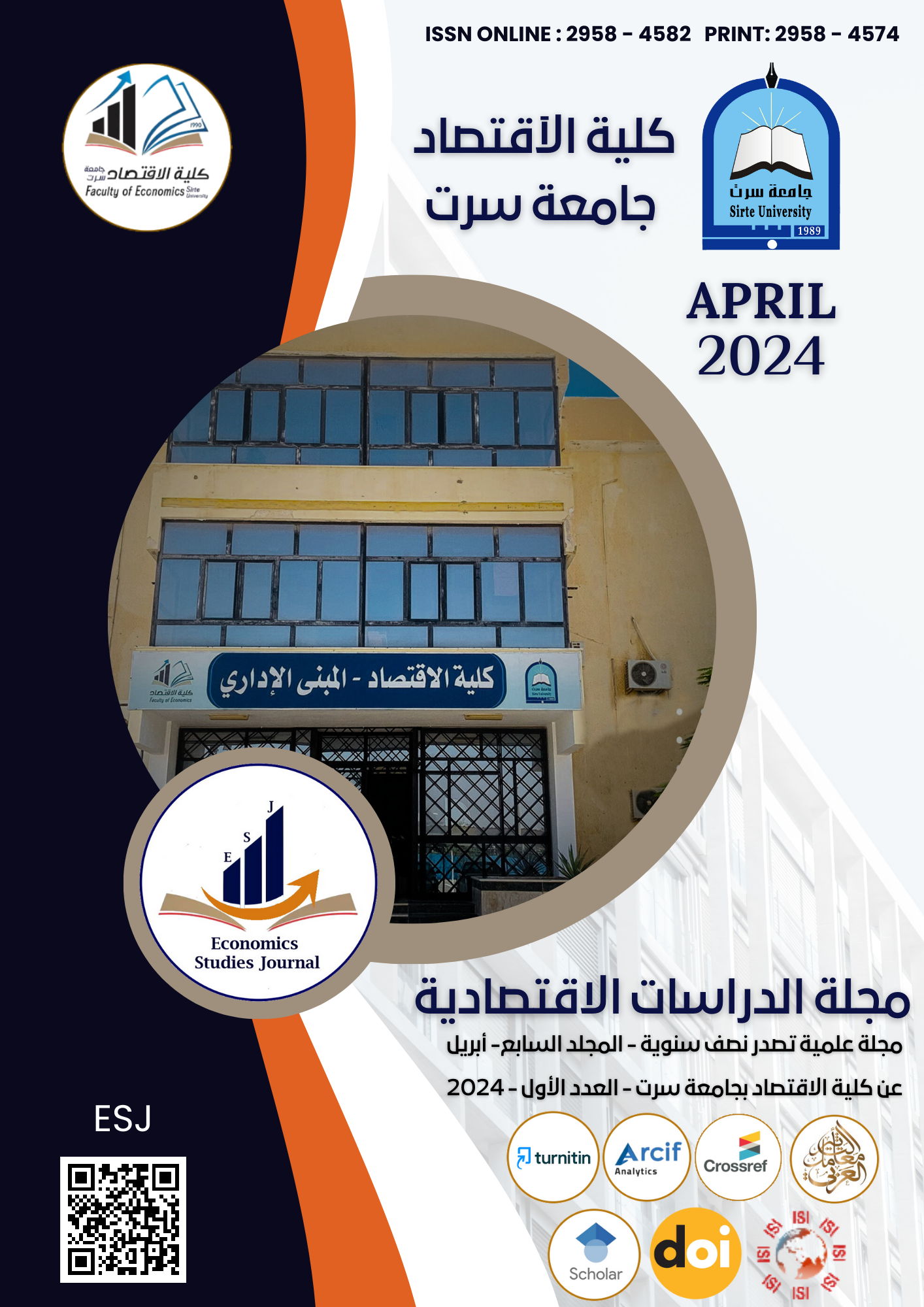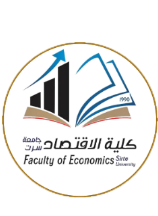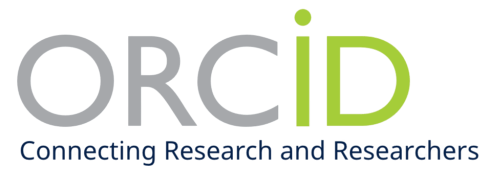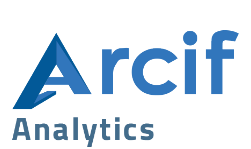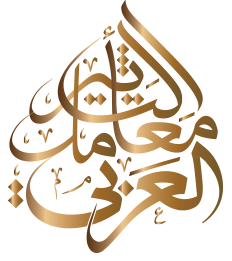The impact of organizational culture dimensions on intellectual capital (An applied study on a sample of faculty members in the faculties of economics at the University of Tripoli – Libya)
DOI:
https://doi.org/10.37375/esj.v7i1.2714Keywords:
Organizational culture dimensions, intellectual capital, Creativity culture, Culture and talent managementAbstract
The aim of this study is to identify the impact of the organizational culture dimensions on intellectual capital through a study on a sample of 115 individuals of faculty members in economics' faculties at the University of Tripoli – Libya namely: the faculty of economics and management, and the faculty of economics and political sciences. This study was addressing the following question: does the prevailing organizational culture at the University of Tripoli support the adapted concept of intellectual capital? Based on the objectives and problem of the study, the study relied on a main hypothesis that stated : "There is a statistically significant effect between the dimensions of organizational culture and intellectual capital in the economic colleges at the University of Tripoli, Libya", Six sub-hypotheses were derived from it to test the impact of the six dimensions of organizational culture, which are: (the professional characteristics, the organizational leadership, the employee management, the organizational cohesion, the strategic focus, and the success criterion). The study reached ten results, the most important one was Acceptance of all of the six sub-hypotheses with an average effect of (32.88%) on intellectual capital in the faculties of economics at the University of Tripoli/Libya; and the average complementary percentage of the impact of the six organizational culture dimensions on intellectual capital was (67. 12%).The study recommended the necessary need to conduct subsequent studies to recognize the prevailing organizational culture at the University of Tripoli to identify the cultural gap, and to search for possible ways and means of preparation, change, development and moving towards a culture of creativity, to support the intellectual capital. Also to test the study methods and approaches in Libyan universities to reach results and recommendations that can be generalized and take the most advantage of it at the level of higher education institutions in Libya
References
المصادر العربية
- أبوجليل، محمد ، هيكل، إيهاب آخرون: سلوك المستهلك واتخاذ القرارات الشرائية،ط1، (عمان: الأردن، دار الحامد للنشر والتوزيع، 2013).
- أبوالنيل، أحمد محمد سعد: العلاقة بين ثقافة المنظمة والتميز المؤسسي من خلال رأس المال الفكري ،(مصر: المجلة الأكاديمية للبحوث التجارية المعاصرة المقالة 7، المجلد 3، العدد 2، يونيو 2023).
- خليفة، زياد: الثقافة التنظيمية ودورها في رفع أداء المؤسسة، رسالة ماجستير منشورة في العلوم الإدارية، (جامعة نايف للعلوم الأمنية، المملكة العربية السعورية، الرياض، 2008).
- الساعد، رشاد، الغدير، حمد: سلوك المستهلك – مدخل متكامل ط2، (الأردن: عمان، دار زهران للنشر والتوزيع، 2012).
- الشيخ، نبيل: الثقافة التنظيمية كمتغير وسيط في العلاقة بين رأس المال الفكري وتحقيق الميزة التنافسية في قطاع المستشفيات بالجمهورية اليمنية،(مصر: جامعة عين شمس، المجلة العلمية للاقتصاد والتجارة،MD: 661454، 2015).
- الطائي، حميد، العلاق، بشير: التسويق الحديث مدخل شامل، (عمان: الأردن، دار اليازوري للنشر والتوزيع، 2009).
- عبد الحميد، طلعت، الخطيب، ياسر آخرون: سلوك المستهلك المفاهيم العصرية والتطبيقات، (الرياض: السعودية، مكتبة الشقيري، 2005).
- العنزي، عطا الله: العلاقة بين الثقافة التنظيمية ورأس المال التنظيمي والإبداع التنظيمي لدى أعضاء هيئة التدريس بجامعة الحدود الشمالية، (جامعة واسط: مجلة كلية التربية، المجلد 3، العدد 46 2022)، https://doi.org/10.31185/eduj.Vol3.Iss46.2794
- فرج الله، أحمد: دور الثقافة التنظيمية كمتغير معدل في العلاقة بين رأس المال الفكري وتطوير الأداء: دراسة ميدانية على الجامعات الفلسطينية العاملة في قطاع غزة (مجلة جامعة فلسطين للأبحاث والدراسات: المجلد 6، العدد 4 ديسمبر،2016).
المصادر الأجنبية
- Berzkalne, & Zelgalve,(2014) Intellectual Capital and Company Value. Procedia -Social and Behavioral Sciences, 110.
- Brooks,M.,G.,(2007) "Organizational Leadership in Academic Libraries: Dentifying Culture Types And Leadership Roles", Unpublished dissertation, Marshall University, college of education and human services , Huntington ,West Virginia .
- Denison, D. & Spreitzer, G. (1991). Organizational culture and organizational development: a competing values approach. Research in Organizational Change and Development, VOL. 5, 1-21.
- Edvinsson. L., Developing Intellectual capital at Skandia, Long range planning, 1997. Sveiby, K. E., The new organizational wealth: Managing and measuring knowledge based assets, Better Kohler, San Francisco, 2000.
- Ferenhof,& Durst, (2015), Intellectual Capital dimensions: state of the art in 2014. Journal of Intellectual Capital.
- Johansson, (2014) Measuring to understand Intangible performance drivers. The European Accounting Review, 10 (3).
- Jones, R. (2010)."The Impact of organizational culture and reshaping capabilities on change Implementation success: The mediating Rote of Readiness For change", Journal of management studies, l.2 (42).
- Krejcie. R&Morgan.D.(1970). Determining sample size for research .Educational and psychological Measurement.30.607-610.
- Miller, V., (2004)," An examination of contemporary marketing practices used by organizations with different culture types: A test of the convergence theory in the US and Cote d'Ivoire", Unpublished dissertation, J.Mack Robinson college of business, Georgia University.
- Newstrom, J. & Davise, K.(1993), Organizational Behavior; Human Behavior at Work: team work Ninth Edition, Von Hoffman press, North America.
- Parker, R. & Bradley, L. (2000). Organizational culture in the public sector. Report for the Institute of Public Administration Australia.
- Saez P Lopez, Castro G. Martinde , Lopez J Emilio Navas & Verd M. Delgado (2010)" Intellectual Capital and Technological Innovation: Knowledge-Based Theory and Practice", by IGI Global, Hershey.
- Schein, E.H. (1992), Organizational Culture and Leadership (Second
edition), Jossey - Bass , San Francisco.

